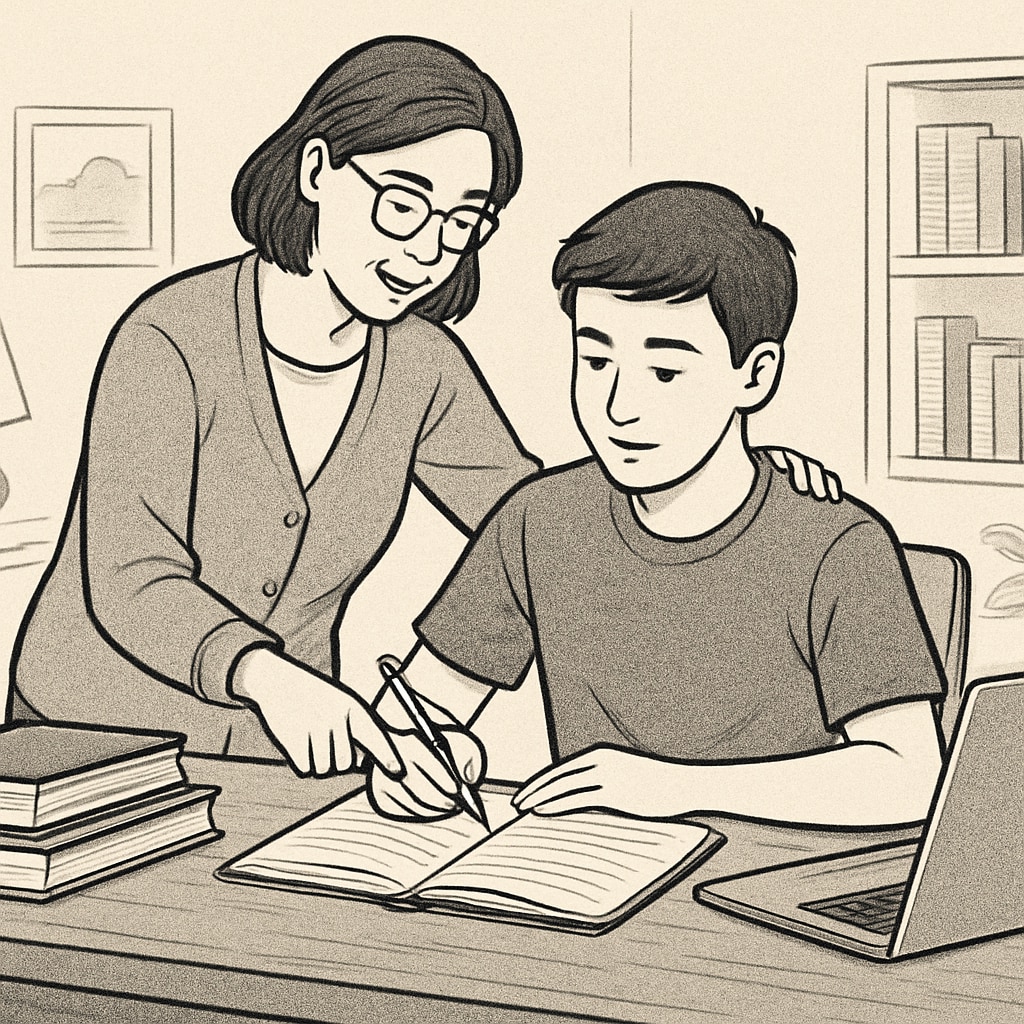Many teenagers face challenges such as learning difficulties, lack of motivation, and unhealthy lifestyle habits that hinder their personal growth. Parents and educators play a crucial role in guiding them back on track. By addressing these issues through family education, fostering interest, and promoting healthy development, we can empower teens to thrive academically and personally.

Identifying Learning Struggles and Breaking Down Barriers
Learning difficulties can manifest in various ways, such as trouble concentrating, poor academic performance, or resistance to studying. Addressing these challenges starts with understanding the underlying causes. For example, some teens may struggle due to undiagnosed learning disabilities, while others may lack effective study skills or face mental health challenges such as anxiety.
Parents can take the following steps to help teenagers overcome these barriers:
- Open communication: Encourage teens to express their struggles and feelings without judgment.
- Professional assessment: Consider consulting a psychologist or educational expert to identify any learning disabilities.
- Customized learning plans: Work with teachers to create personalized strategies that suit the teen’s needs.
For additional information on common learning disabilities, visit Learning Disabilities on Britannica.

Developing Healthy Lifestyle Habits for Better Focus
Unhealthy lifestyle choices, such as poor diet, lack of exercise, and irregular sleep patterns, can significantly impact a teenager’s ability to learn and stay motivated. Building healthy habits is essential for improving focus, energy, and overall well-being.
Here are practical ways to encourage better habits:
- Establish routines: Encourage regular sleep schedules, meal times, and study periods.
- Promote physical activity: Engage teens in sports, yoga, or other forms of exercise they enjoy.
- Limit screen time: Set boundaries on social media and video games to reduce distractions.
Research shows that physical activity boosts cognitive function and mental health. Learn more about this topic at Physical Exercise on Wikipedia.
Fostering Interest and Motivation in Learning
Motivation often stems from a sense of purpose and engagement. Many teenagers struggle with school because they don’t see the relevance of their studies to their lives. Parents can help by connecting learning to their teens’ interests and aspirations.
Consider these tips to spark curiosity and enthusiasm:
- Explore passions: Encourage teens to pursue hobbies, such as art, music, or coding, and integrate these into their learning.
- Set achievable goals: Help them outline short-term and long-term objectives that align with their dreams.
- Celebrate milestones: Recognize and reward their efforts to reinforce positive behaviors.
By fostering intrinsic motivation, teens can develop a deeper appreciation for learning and its benefits. For example, if your teenager enjoys writing, encourage them to participate in creative writing workshops or competitions.
Conclusion: Addressing learning difficulties, unhealthy habits, and lack of motivation requires a holistic approach that combines family education, tailored strategies, and encouragement of individual interests. With patience and support, parents and educators can help teenagers overcome their challenges and achieve their full potential.


